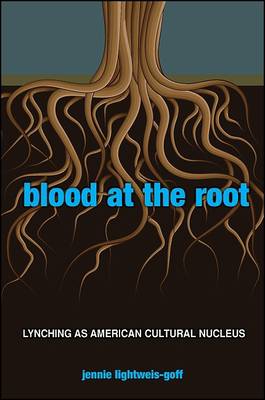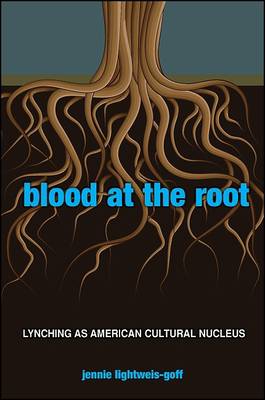
Door een staking bij bpost kan je online bestelling op dit moment iets langer onderweg zijn dan voorzien. Dringend iets nodig? Onze winkels ontvangen jou met open armen!
- Afhalen na 1 uur in een winkel met voorraad
- Gratis thuislevering in België vanaf € 30
- Ruim aanbod met 7 miljoen producten
Door een staking bij bpost kan je online bestelling op dit moment iets langer onderweg zijn dan voorzien. Dringend iets nodig? Onze winkels ontvangen jou met open armen!
- Afhalen na 1 uur in een winkel met voorraad
- Gratis thuislevering in België vanaf € 30
- Ruim aanbod met 7 miljoen producten
Zoeken
€ 43,95
+ 87 punten
Omschrijving
In Blood at the Root, winner of the SUNY Press 2009 Dissertation/First Book Prize in African American Studies, Jennie Lightweis-Goff examines the centrality of lynching to American culture, focusing particularly on the ways in which literature, popular culture, and art have constructed the illusion of secrecy and obsolescence to conceal the memory of violence. Including critical study of writers and artists like Ida B. Wells-Barnett, Richard Wright, William Faulkner, George Schuyler, and Kara Walker, Lightweis-Goff also incorporates her personal experience in the form of a year-long travelogue of visits to lynching sites. Her research and travel move outside the American South and rural locales to demonstrate the fiction of confining racism to certain areas of the country and the denial of collective responsibility for racial violence. Lightweis-Goff seeks to implicate societal attitude in the actions of the few and to reveal the legacy of violence that has been obscured by more valiant memories in the public sphere. In exploring the ways that spatial and literary texts replace lynching with proclamations of innocence and regret, Lightweis-Goff argues that racial violence is an incompletely erupted trauma of American life whose very hiddenness links the past to still-present practices of segregation and exclusion.
Specificaties
Betrokkenen
- Auteur(s):
- Uitgeverij:
Inhoud
- Aantal bladzijden:
- 231
- Taal:
- Engels
Eigenschappen
- Productcode (EAN):
- 9781438436289
- Verschijningsdatum:
- 31/08/2011
- Uitvoering:
- Paperback
- Formaat:
- Trade paperback (VS)
- Afmetingen:
- 152 mm x 226 mm
- Gewicht:
- 317 g

Alleen bij Standaard Boekhandel
+ 87 punten op je klantenkaart van Standaard Boekhandel
Beoordelingen
We publiceren alleen reviews die voldoen aan de voorwaarden voor reviews. Bekijk onze voorwaarden voor reviews.











